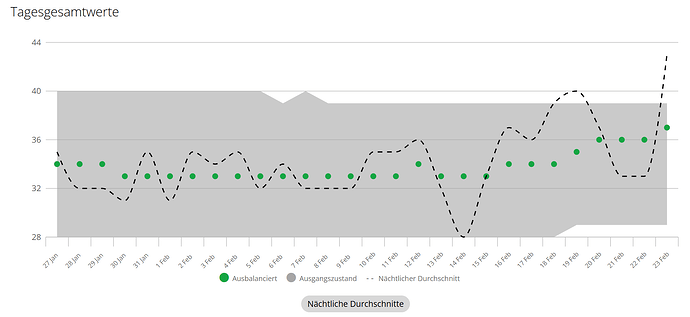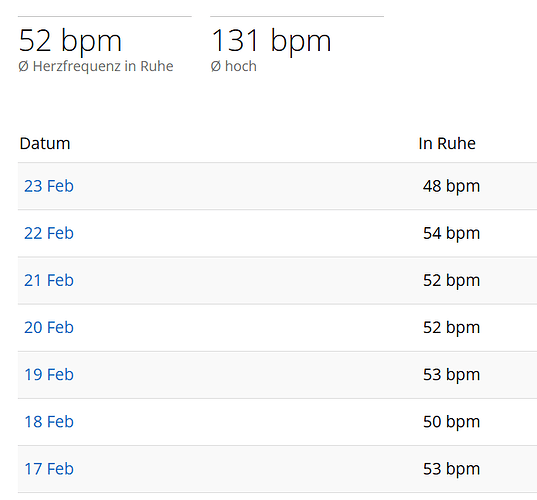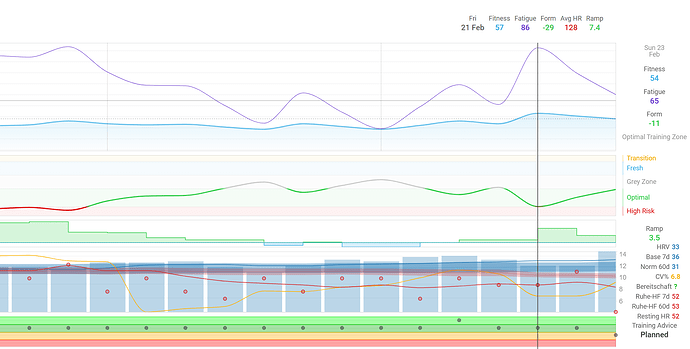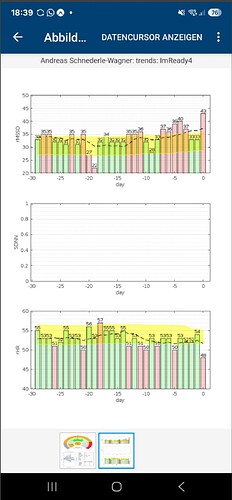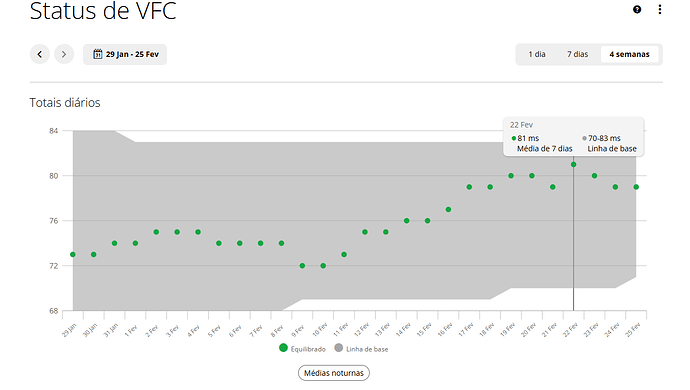Hey everyone,
I’ve noticed that my heart rate variability (HRV) increased significantly two days after a long and intense base endurance ride (100km Bike 253 Load, 72% Intensity), and I’m unsure how to interpret it. Here’s my data from the last few days:
- Friday (100 km bike ride): HRV 33, RHR 52
- Saturday: HRV 33, RHR 54
- Sunday: HRV 43, RHR 48
Today (Sunday), I feel rested and fit, but I’m not sure whether this HRV spike is a sign of supercompensation, meaning I should push a more intense session today, or if it’s better to take a rest day to let the adaptation fully settle.
Would love to hear your experiences—how would you approach training on a day like this?
Thanks! 


PS: I’ve noticed this pattern quite often in myself — my HRV tends to spike 10-25% two days after a long base-intensity sessions.
Excatly the same for me. 2 days after long endurance ride (usually saturady and sunday with 2 long ride, and mondy is my rest day), On Tuesday, my HRV increase a lot over baseline and HR is lower. And during this day, I make vo2max workout (3x 10x 40/20 at 140%).
1 Like
My guess, and this is just a guess, is that your heart rate variability has a stronger correlation in the short term to some beta variables. As in, HRV might be tied stronger to sleep and eating and perhaps you had a good meal and a great nights sleep after an exhausting ride.
For me, I look at HRV as 10 day moving averages. There is way to much day to day variability to use it as any sort of guidance. I look at how it’s trending as a 10 day moving average and let it guide my training from there.
-Balboni
1 Like
Thanks to both of you for your replies!
Yes, in general, I also focus more on long-term trends. However, this pattern is reproducible for me and almost always occurs after very long base endurance sessions, so I would associate it more with training rather than other factors.
I was hoping that someone might have some medically founded insights on this observation, as I’m really curious about what exactly happens in the body, why it reacts this way, and what it means. 
Hi,
With me happens the same, after i increase my volume (8-9hrs to 11-12hrs), with less intensity my HRV started to rise, but RHR show a little and unoticiable difference.
i don’t know, but after that i take a day of rest because i’m feeling tired after all.
Sorry for my english.
Hmm. Perhaps download Elite HRV for the phone and use that and compare the two. There are other metrics to look into as well. For example, RMSSD, SDNN, LNrmssd, PN50, HRV TOtal Power, low frequency power, high frequency power.
@Andreas_Schnederle-W
My thoughts on the topic are the following (if all other stress parameters like lifestressors, temperature, etc. are similar):
- the higher HRV is due to a delayed recovery response. typically after high TSS/stress days the initial response is a supressed hrv and a higher RHR. >> your day 1 >> recovery process kicks in day 2 then as you typically see (parasympathetic nervous system kicks in)
- regarding supercompensation, i don’t know. Could be. Higher HRV typically at least gives the indication that your body should be in a enhanced readiness mode.
- Another thought a have is that it the peak in HRV could be linked to higher plasma volume in an indirect way.
2 Likes
![]()
![]()
![]()
